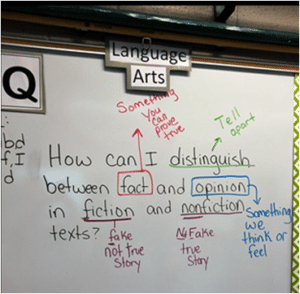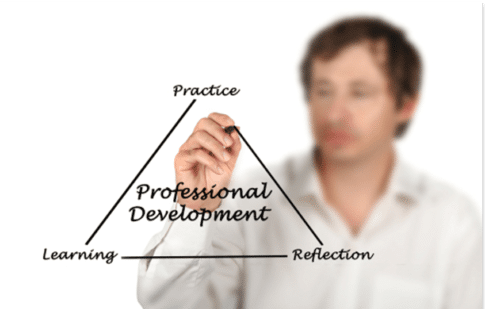Don Marlett
Don has been an educator for 20+ years. Before joining Learning-Focused, he taught High School and Middle School Science and was a school administrator. Don has participated in school evaluations focused on implementing High Yield Strategies. In addition, he partnered with various state DOE to support leaders as well as present at numerous conferences hosted by multiple leadership organizations in Florida, NC, Ohio, WV, TN, and KY Don leads product development, provides leadership training and coaching, and coaches educators in the implementation of the High-Yield strategies.Exemplary schools understand that teaching effectiveness is the first and foremost factor associated with student achievement. Typical schools usually adopt a framework of practices to guide them toward their goals. Most of the frameworks that schools choose broadly define what to do and often include the targeted artifacts of successful implementation. These frameworks are essential…
Read MoreTraditional Assessment When you think of assessments, the traditional method is of course paper and pencil. And when you think of paper and pencil “testing,” you may think of the required countless hours of grading that inevitably follows. As a teacher, this is often one of the most challenging barriers to overcome when planning lessons…
Read MoreDon’t forget that all students need time for strategic review. This might mean for semester or final exams, or it might mean after a series of related lessons. When it’s time for review, don’t revert back to the “old way” of doing things — worksheet packets or a silent study hall. What students have accomplished…
Read MoreWhy Is A Lesson Essential Question More Effective Than An Objective? Chances are that if you have been in education long enough, you have been asked at least one time or another, to display the standard(s) you are currently teaching on the board for students to see. The rationale behind posting the standard on the…
Read MoreWhy does the Learning-Focused Instructional Framework work so well? The highest achieving schools in the nation all use a proven framework for instruction based learning. An exemplary instructional framework, such as The Learning-Focused Instructional Framework, provides a structure that connects all of the lessons learned from exemplary schools and address major concerns in schools and districts. Connecting…
Read MoreHow can the use of scaffolding support student achievement? “Start with where you want them to be (the grade level standard) and make it learnable.” (C. Boyles). As educators, we have the very complicated task of ensuring that all students are successful learners, but how exactly do we do that? How do we make sure…
Read MoreIt takes more than one-and-done professional development to make a true impact. The goal of all effective teacher professional development is for educators to acquire new knowledge and skills, and most importantly, translate their new knowledge and skills into classroom practice. Clearly, without classroom implementation, there is no impact on student learning. Unfortunately, professional development…
Read MoreUsing a single research-based strategy or a single exemplary practice effectively in a lesson will yield positive results for learning for most students. And depending on the strategy or practice, it produces much, much more learning than not using it! Usually, teachers have a few strategies that they like to use with students. Choosing whether…
Read MoreHow is student learning monitored for flexibility and connections to real life? Monitoring student learning is an ongoing challenge. Students can complete an assignment, but still not be flexible with their learning. They have trouble making connections or explaining a task in a different way other than the examples you have used. For example: When asked…
Read MoreHow do you narrow the focus of walkthroughs? Typically when principals plan for and schedule walkthroughs, they are looking at teachers and for best practices. Moss and Brookhart (2013), however, suggest that a better plan is that they begin to observe what’s happening in the classroom from the students’ perspective rather than just checking off…
Read More









